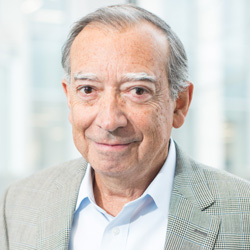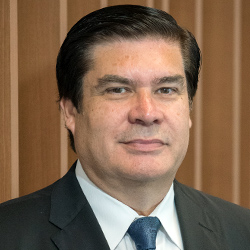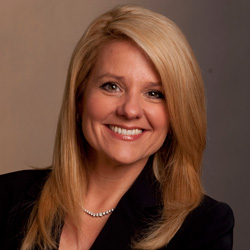Alumna Latonia Harris Elected to National Academy of Engineering
Harris was cited for leadership in biomanufacturing and outreach activities in STEM education
Alumna Latonia Harris (MS ’97, PhD ’01), who earned her MS and PhD degrees in the Department of Chemical and Biological Engineering, has been elected to the National Academy of Engineering, one of the highest professional distinctions awarded to an engineer.
Harris, along with Northwestern Engineering professors Horacio Espinosa and Jorge Nocedal and alumni Gwynne Shotwell and Stephan Biller, stand among the 87 new domestic members and 18 new international members announced by the NAE on February 6. They will be formally inducted during a ceremony at the NAE’s annual meeting on October 4, in Washington, DC.
“We are extremely proud that Horacio and Jorge have been recognized at the highest level in our field. They are both outstanding researchers and educators, known for their spirit of collaboration,” said Julio M. Ottino, dean of the McCormick School of Engineering. “To also have three outstanding alumni, Latonia, Gwynne, and Stephan, join the ranks of the most accomplished engineers delights me, knowing their foundation was built at Northwestern Engineering.”
Harris (MS ’97, PhD ’01) serves as scientific director at the Janssen Pharmaceutical Companies of Johnson & Johnson.
She was cited “for leadership in biomanufacturing of a breakthrough immunotherapy biotherapeutic, and for outreach activities in STEM education.”
Harris has two decades of experience in biotechnology, pharmaceutical development, and manufacturing sciences, including technical management, early state development, late stage development, process validation, and commercial launch. In her current role, she provides technical and strategic leadership to meet worldwide drug demand for a breakthrough oncology therapy.

He was cited “for contributions to the theory, design, and implementation of optimization algorithms and machine learning software.”
Nocedal, who directs the Center for Optimization and Statistical Learning, focuses on optimization, machine learning, optimal control, software, and scientific computing. His highly cited research stands at the intersection of computer science, operations research, and applied mathematics. His career achievements, including vast contributions to the theory of nonlinear optimization methods and the creation of new, widely applied algorithms, earned him the George B. Dantzig Prize in 2012 from the Mathematical Optimization Society and the John von Neumann Theory Prize in 2017, regarded as the most prestigious theory prize in operations research.

He was cited “for contributions bridging nanoscale experimentation and atomistic simulations.”
Espinosa’s work focuses on understanding the mechanical behavior of natural and synthetic nanomaterials across scales, from nano to macro, as well as developing micro/nano devices for materials research and personalized medicine. He is a fellow at the American Academy for the Advancement of Science and serves as the director of Northwestern Engineering’s Theoretical and Applied Mechanics graduate program and Institute for Cellular Engineering Technologies. His many honors include the Society of Engineering Science’s Prager Medal and the Society for Experimental Mechanics’ Murray Medal.
Shotwell (’86, MS ’88) is president and chief operating officer of SpaceX, which manufactures and launches advanced rockets and spacecraft.
She was cited “for bringing affordable, commercially competitive space transportation to NASA and the US National Security Space Launch.”

Under Shotwell’s leadership, SpaceX’s Dragon became the first commercial spacecraft to deliver cargo to and from the International Space Station in 2012. In 2017, the company successfully achieved the historic first re-flight of an orbital class rocket, and in 2018, SpaceX launched Falcon Heavy, the world’s most powerful operational rocket. Last year, she received the prestigious Ralph Coats Roe Medal from the American Society of Mechanical Engineers in a ceremony at Northwestern. She was a member of the McCormick Advisory Council and is a member of the Northwestern University Board of Trustees.
Biller (PhD ’96) serves as vice president for offering management at IBM Watson IoT, an Internet of Things platform that uses the power of Watson to help organizations securely connect, manage, and analyze IoT data.
He was cited "for leadership and advancement of manufacturing technologies and innovations based on the Internet of Things and digital data."

Founded in 1964, the National Academy of Engineering is a private, independent, nonprofit institution that provides engineering leadership in service to the nation. It has more than 2,000 peer-elected members and foreign associates, senior professionals in business, academia, and government, who are among the world’s most accomplished engineers.

